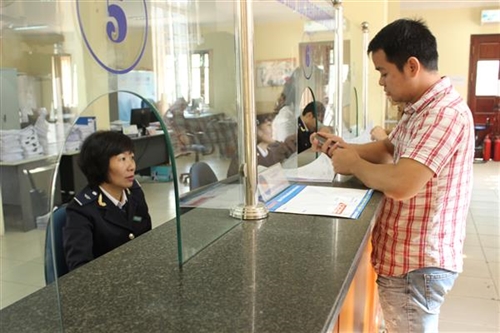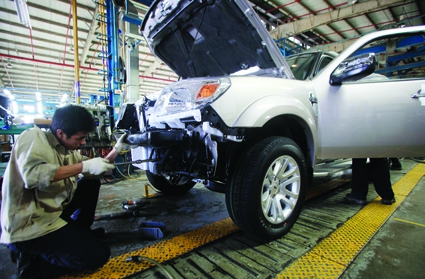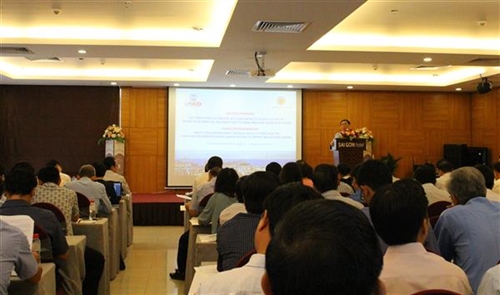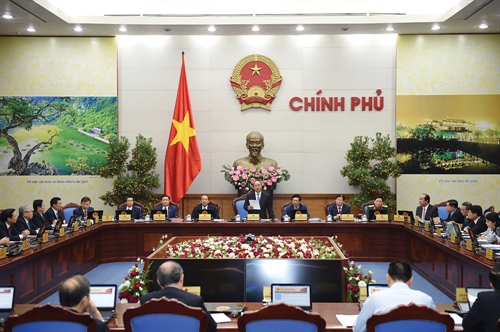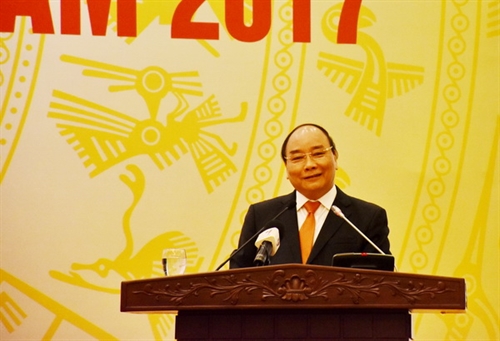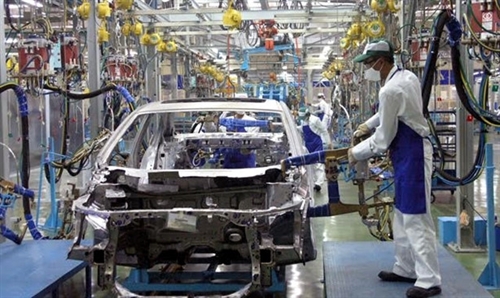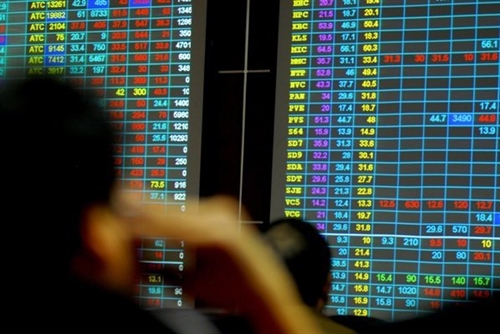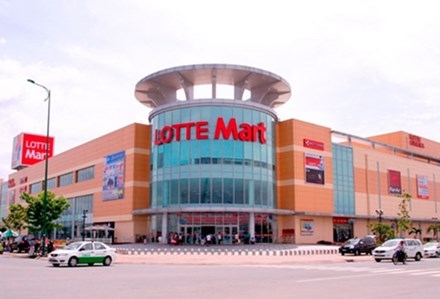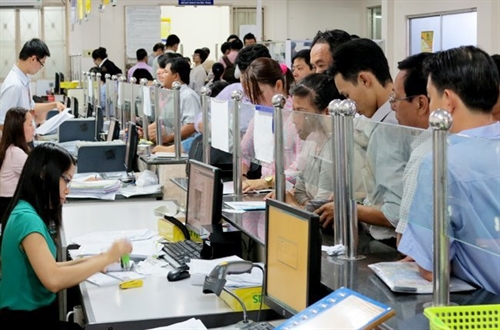Vietnam needs to develop a comprehensive industrial policy framework to promote and improve the quality of national industrialization and modernization during the 2016-25 period, said Nguyen Van Binh, head of the Party Central Committee’s Commission of Economic Affairs.
Addressing a recent international conference “National Industrial Policy of Vietnam to 2025, vision to 2035” in Hanoi, the Party official said the country’s industry was developing too slowly and still reliant on foreign-invested enterprises.
Between 2006 and 2015, the country’s total industrial production value rose 3.42 times, while the industrial portion of the GDP remained stable at 31-32 percent.
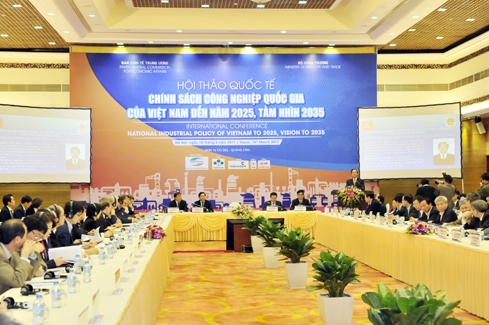 |
| International conference “National Industrial Policy of Vietnam to 2025, vision to 2035” in Hanoi__Photo: Internet |
While this has created jobs and contributed to socio-economic development, industrial production growth has been unsatisfactory and unsustainable; and industrial labor productivity, especially in the processing and manufacturing sectors, has been low, Binh added.
The annual growth of average labor productivity in the industrial sector, especially in manufacturing, has been at a low rate of 2.4 percent, lower than that of the economic growth rate of 3.9 percent in the 2006-15 period, he noted.
In comparison with other countries in the region, Vietnam’s industrial productivity lags behind, Malaysia’s and Thailand’s is 6.4 times greater, and that of the Philippines is 3.4 times higher.
Participants shared the view that the nation should continue to update its mechanisms and policies to create a favorable environment for attracting investment.
Furthermore, the country should clearly define the role of economic components in industrial development to appropriately orient development policies, promote the application of new technologies, facilitate labor restructuring, improve the quality of industrial human resources and diversify financial resources for industrial development, they added.
Experts also discussed experience in developing industrial policies in Japan, the Republic of Korea and Thailand and identifying opportunities and challenges for industrial development.
Participants proposed several orientations for industrial development policy, including restructuring industrial investment, selecting key sectors to enjoy investment priorities, facilitating allied industry development and protecting domestic production with appropriate technical barriers.-(VLLF)
